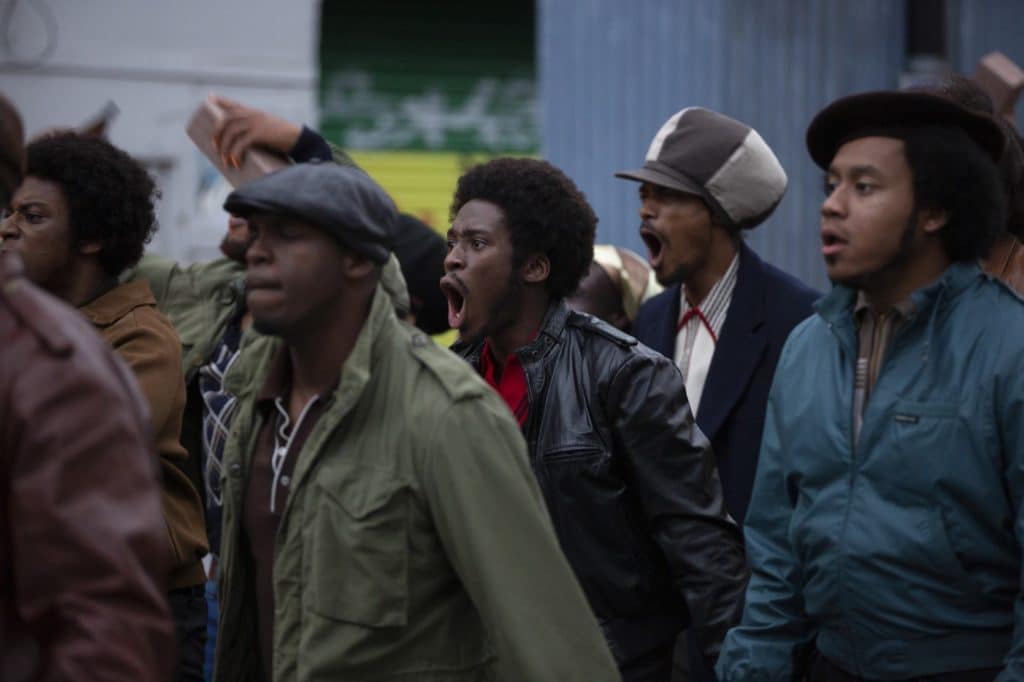Read also:
How to Watch FX Live Without CableHow To Watch AMC Without CableHow to Watch ABC Without CableHow to Watch Paramount Network Without CableSteve McQueen’s anthology about Black life in London has its low point in a truncated biopic about the acclaimed British author.
After a trio of strong installments, all of which premiered earlier this fall at the New York Film Festival, the next entry in Steve McQueen’s Small Axe anthology stumbles. Named after its subject, we get a glimpse into the life of Alex Wheatle, from the abuse he faced as an orphan to his incarceration to the start of his career as a writer. Yep, instead of an atmospheric night out, courtroom drama, or blistering police procedural, McQueen pivots to… the biopic.
At the top of its brief hour-and-four minutes, we meet Alex (Sheyi Cole) during the beginning of a short prison sentence, an event McQueen doesn’t contextualize until the final stretch. Thanks to some flashbacks and a cellmate to whom he can tell his life story, we bounce around in time, from Wheatle’s traumatic stay in a suburban state foster facility to his young adulthood in Brixton.
It’s a painful opening: Alex’s treatment by white adults and peers is difficult to watch, alienation he can’t quickly shake as he gets older. Perpetually out of place, Alex slowly adjusts to Brixton. He gets some much needed lessons from local Dennis (Jonathan Jules), and eventually decides to start making music. But history soon crashes into Alex, in the form of the 1981 Brixton Uprising, protests that began after a fire at a house party killed thirteen Black folks.

Alex’s involvement in these protests lands him in jail, where he eventually achieves liberation through literacy. However, McQueen and co-writer Alastair Siddons struggle to connect the dots of Alex’s life and fail to meaningfully tie Alex Wheatle together with the other Axes. McQueen’s more interested in Alex as an outsider of his own culture than either the riots he took part in or the novels he would eventually write – that “liberation through literacy” is left in the margins, explained by the end credits. How did the protest music Alex made in his youth inform his later work? This rich material is left to the imagination.
Furthermore, while the incorporation of real photos of the Brixton Uprising is moving, Alex Wheatle’s glimpse at the event feels lacking. The link between Lovers Rock – which did such a phenomenal job of bringing the viewer into a house party – and the potential arson of such a space shouldn’t just be implied. If McQueen’s anthology is going to acknowledge the tragedy and mass protests that followed, the Brixton Uprising probably deserves more than fifteen minutes.
Still, even a weak Small Axe still has some heft. Cole, in his screen debut, infuses Alex with nuance the script doesn’t always supply. His Alex maintains a sense of introspection that lies beneath his righteous rage, fear, and disaffection. But Wheatle lacks a compelling hook, failing to pull the viewer into Alex’s complex story. McQueen needed a larger canvas on which to render his central subject – if the filmmaker was only concerned with some of its parts, the real Wheatle could’ve served as inspiration instead of subject. Following Mangrove, Lovers Rock and Red, White, and Blue is no easy task. The worst thing you can say about Alex Wheatle is that it fails to live up to its peers.
Alex Wheatle is currently streaming on Amazon Prime Video, along with the rest of the Small Axe anthology, which concludes December 18th.